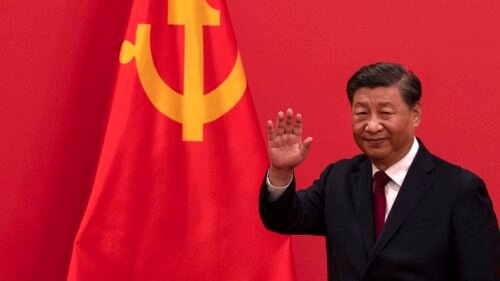$DPWL $AMZN $KNIN
#Logistics #China #TradeTensions #USChinaRelations #SupplyChain #Manufacturing #GlobalTrade #DHL #KuehneNagel #CevaLogistics #Geopolitics #Economy
Logistics companies, including DHL, Ceva Logistics, and Kuehne+Nagel, are restructuring their operations to help Chinese manufacturers navigate escalating Sino-US trade tensions. One key strategy involves redeploying Mandarin-speaking staff to facilitate the establishment of operations overseas. This move underscores the challenges Chinese exporters face as they look to diversify their supply chains beyond China amidst shifting geopolitics and rising tariffs imposed during the trade dispute. By strategically positioning staff fluent in Mandarin, these logistics companies aim to better serve their clients looking to minimize risk and find alternative solutions for export continuity. Analysts predict that this targeted redeployment could be a significant value driver for global logistics firms, as demand for expertise in navigating complex supply chains rises.
The decision by global logistics players to adjust operations speaks to the broader pressures on the global supply chain network. For years, China has been the backbone of global manufacturing, but the protracted trade dispute with the U.S. has prompted many businesses to rethink their dependency on the country. As tariffs continue to impact profit margins and the political landscape remains uncertain, companies are seeking to relocate parts of their manufacturing base to countries like Vietnam, India, and Mexico, which offer favorable tariff treatments and growing infrastructure potential. Logistics firms such as DHL and Kuehne+Nagel are capitalizing on this structural shift, positioning themselves as indispensable partners in this time of economic rearrangement, a trend that could translate into growth opportunities for shareholders.
From a financial perspective, this realignment may serve as a growth catalyst for players in the logistics sector. For instance, Deutsche Post DHL ($DPWL) has seen a consistent focus on regional diversification, a strategy that aligns closely with this move. In parallel, sectors tied to e-commerce giants like $AMZN, which rely heavily on seamless cross-border logistics, could see residual benefits as supply chain efficiency improves. Meanwhile, Kuehne+Nagel ($KNIN), which is already regarded for its global freight services, might build additional market momentum as it cements itself as a critical problem-solver for businesses caught in geopolitical headwinds. This operational pivot appears poised to enhance service revenues, boost client retention rates, and potentially reflect positively in earnings reports in upcoming quarters.
However, there are significant macroeconomic implications to consider. While initiatives like these aim to mitigate short-term woes for Chinese manufacturers, they also signal a potential decoupling of U.S. and Chinese economic interests—a shift that could reshape international trade dynamics over the long term. As supply chain diversification becomes the norm rather than the exception, investors may see increased opportunities in emerging markets where manufacturing capacities are expanding. Moreover, this trend highlights the complexities of globalization in an era marked by geopolitical uncertainty, where adaptability may become the defining competitive edge for countries, companies, and investors alike.











Comments are closed.